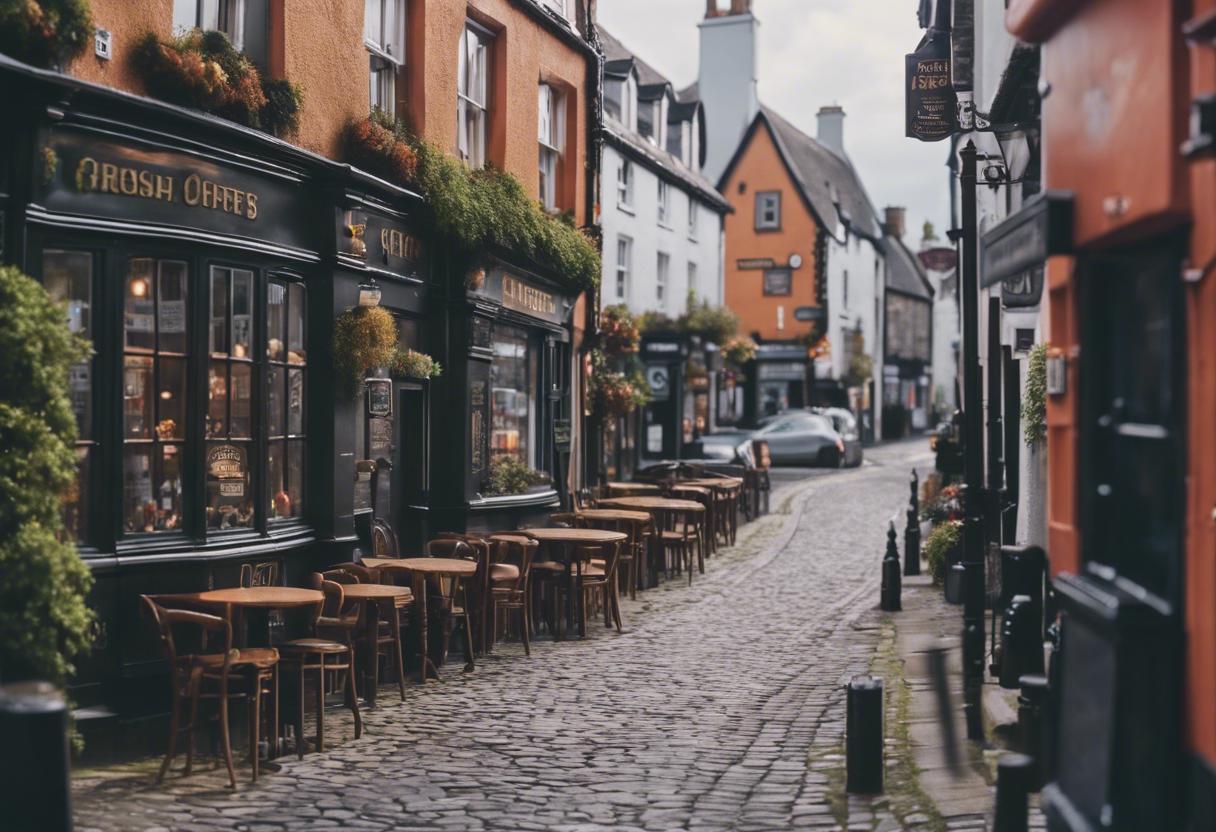The multitude of challenges continue to plague Ireland’s hospitality sector, including escalating wage bills, staff shortages, shrinking profit margins, implications of the housing crisis, work from home impacting city footfall, the perilous Dublin loop, insurance and energy costs, and the prices of produce.
This situation implies that independent establishments will inevitably shut down with global chains and brands occupying these vacancies, especially in Dublin. In other areas of Ireland, these might remain vacant.
The survival of the hospitality sector rests on a survival of the fittest framework, but even top-notch venues struggle, particularly if they lack a moneyed investor. While some fail to withstand changes in trends, others are exceptional yet facing financial issues. Many existing eateries are swamped, operating at their maximum potential, but the escalating pressures and costs mean the rewards are not commensurate with the efforts. Individuals with innovative ideas who manage businesses effectively and sincerely deserve a fair income.
Despite restaurateurs and café owners rallying for support, the campaign to reduce VAT to 9% did not triumph. Rising costs are central to the issue, but innovative nationwide initiatives need to be considered, creating an environment conducive for independent eateries to flourish.
While Dublin’s Liberties boats everything, it lacks direction, planning, concern, and attention. It is excruciating for households struggling with finances to see the government splurging on misplaced priorities. The incorrect attributions to homelessness by Varadkar and Harris to immigration, instead of governmental policies, need rectification.
Despite existing demand for hospitality services, dwindling profits are causing concern. The priority should be in backing independent pubs, cafes, restaurants and bars, recognised for quality, regardless of the pricing. It is pivotal to maintain places of community, cultural and culinary value – essentially those you’d desperately miss once gone.
Here are four solutions to revive the hospitality sector, that do not exclusively resort to a VAT reduction.
1. Lá Bialann
Imagine a similar occasion to Culture Night, instead dedicated to independent eateries. Alongside the cultural events, a concentrated celebration of this sector could invigorate both customers and the economy. Stimulating an interest for different cuisines, fostering community spirit, generating a fresh clientele, and enjoying food throughout the country could be achieved. What about designating a day and evening where everyone who is able, shares a meal? From street parties to alfresco barbecues, both traditional and innovative options would be up for exploration. Let’s fling open the doors, make room at the table and indulge in some amusement.
It’s vital for any endeavour of this sort to ensure that independent restaurants and cafés don’t bear the brunt of cost or labour. A minimum of two government bodies, namely the departments of tourism and culture, and business, could potentially offer financial aid. January is a beneficial period for this event, when business typically lulls. Free nationwide public transport could be offered. The event does not need to be characterized by blatant branding, but rather it should exude authenticity and charm. Picture how beneficial it would be if, either through direct funding or public coupons, independent eateries could have an exceedingly lucrative day right when they need it most.
2. Pedestrianisation
For alfresco dining to be a long-term success, it cannot be seen as a compromise. This would involve pedestrianization on a broad scale to ensure commercial activities don’t infringe on public spaces. People must feel at ease eating outside without the disturbance of passing cars. Certain streets could benefit from awnings during winter, offering protection from weather while enhancing the ambiance. Efforts should be made to ensure a consistency in design and quality of seating and table umbrellas (avoiding alcohol brand affiliated ads). Restaurants and cafes should have the opportunity to improve their outdoor dining spaces with the aid of funding.
The excuse of ‘weather’ is not valid. It’s not unique that it rains in Ireland. With our relatively mild seasons, we often have better circumstances for alfresco dining than cities such as Paris, Copenhagen and New York, where outdoor dining is significantly more accommodated.
3. Dine Local Initiative
We require an active and efficient nationwide movement to stimulate individuals to source food locally and patronise privately-owned eateries. Each reservation made at a dining establishment or café represents a symbol of approval, a decision of significance. We must honor local food producers, eateries, cafés, and the stories they hold. The significance of neighbourhood dining spots must be magnified. Importantly, we must discern between large chain brands, with plentiful resources, and small-scale indigenous Irish businesses. The latter includes long-standing family enterprises as well as newly-established restaurants owned by immigrants, all of which enrich Ireland’s gastronomic landscape.
We should honour quality and incentivise what is distinctive, possesses character, and has more subjective – but clearly recognisable – value than generic counterparts. Consumers wield the power in this context, however, it may be necessary to remind and embolden them occasionally.
4. Nominate Irish pubs as a cultural treasure.
The quintessential Irish pub is of paramount importance to our hospitality services. The astonishing surge of tacky, faux-Irish pubs in Dublin, particularly at present, unveils a desperate effort to lure customers.
There is a distinct irony in the existence of Irish-themed bars in Ireland. Most tourists seek genuine experiences, yet find themselves promised ‘craic agus ceol’ via bold signage, only to be bombarded with banal tunes. The genuine Irish pub holds meaning. Ireland is the sole provider of such an authentic experience. It is advisable that the State moves forward with nominating the traditional Irish pub for recognition on the Unesco’s register of intangible cultural heritage.

